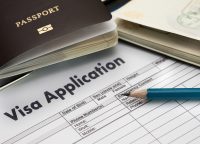UK Standard Visitor Visa Refusal: Reasons and Tips on How to Avoid It

When you apply for a UK Standard Visitor visa and get a refusal, it is not the most pleasant feeling. You might also feel confused when you realise that your plans might have to change. First, let go of all the negative feelings or push away anxiety. A positive attitude and our qualified advisors will help you avoid refusals. In this article, we will cover the reasons for visa refusals and what to do when you get one.
The knowledge of immigration rules saves you time.
Mistake #1
When applying for a visa, you forget to include details that were mentioned in previous applications. For example, you went to the UK, came back and applied for a new visa without providing the information you had included in the previous application. If you fail to notice the missing details, you might get a refusal or entry ban. Carelessness and forgetfulness on your part can cause suspicion from caseworkers.
Mistake #2
You overstay on your UK visa. For example, your application said you will stay in the UK for 2 weeks but in fact, you stayed for 2-3 months. A UK Standard Visitor visa is issued for specific purposes and a limited period (long-term or short-term visas). It cannot be used for long-term stays in the UK. Accordingly, there is a maximum permitted stay of 180 days in a year. If tourists stay in the UK for more than 180 days, they are overstayers who break the immigration rules.
Mistake #3
Supporting evidence such as bank statements must confirm and reflect what you included in your application. For example, payments into your bank account must match the level of salary and other income given in the application to provide for a future visit to the UK.
A bank statement submitted with an application is usually enough. However, nationals of some countries need additional financial evidence, such as an income statement and a bank statement with transactions for the last 6 months.
Mistake #4
If you want to see your girlfriend or boyfriend in the UK, the common mistake is not to mention this in the application. However, it is important and it’s better to describe where you met and how, and attach evidence of your relationship such as photos of your holidays. We recommend submitting an invitation letter from the receiving party which will say what you plan to do during your visit to the UK.
Remember that not only relatives can sponsor your trip but companies or agencies provided there are solid grounds for that. However, the main requirement for an applicant of a UK Visitor visa is to be able to support themselves even when they have a sponsor.
Mistake #5
Failure to mention family members who live in the UK and who invited you. Sometimes, a birth certificate will suffice. If you do have relatives in the UK who invite you to come and visit them, don’t make the gross mistake of not submitting your birth certificate. And do not provide false documents even if you have to postpone a visit.
Mistake #6
If your application says you study at a university or college, you must confirm your student status. Your parents can sponsor your trip and that’s fine. However, it will raise a few eyebrows if you travel during term time. Going away in July or August is OK because they are official holiday months for most students. For example, March is not a holiday month and it will be difficult to convince a caseworker that an exception has been made for you.
If you have provided false information about yourself, caseworkers will refuse your application or ban you from entering the UK for 10 years.
A visa application must present a whole picture of the applicant without contradictions. If you say you are employed, you need to submit an employer’s reference including your position, salary and dates of annual leave (paid or unpaid) that correspond to the period of your visit to the UK.
Here are a few common reasons for a UK visa refusal
- Incomplete paperwork. In addition to the main documents (passport or another form of ID), bookings and travel plan, you should provide financial evidence. This is not just a guarantee of your financial situation but evidence of your financial solvency. If there is no financial evidence (e.g. a bank statement), a caseworker may wonder how you are going to support yourself during a visit to the UK.
Tip: Bank statements must confirm the information provided in the application. - Failure to provide evidence to support information in the application. For example, you say you have a permanent job but there is no reference from your employer. The situation is different for self-employed. You should provide evidence of self-employment and a corporate bank statement.
Tip: Attach a cover letter explaining financial transactions in your bank account. - Missing documents. For example, you have minor children who are dependent on you, but you do not enclose their birth certificates.
Tip: Attach all the required documents for minor children. - Providing contradictory information.
Tip: Avoid discrepancies in the documents. - Lack of ties to the home country. For example, if you are no longer a student; you are single; don’t have a family or a good job, or have elderly dependents, all of these means you have no social ties to the country.
Tip: If you have an unmarried partner or are in a civil partnership that you can prove, you are treated as if you are married. Even if a civil partnership is not recognised in your home country, it might be good enough evidence for a caseworker. - Violations of visa regulations.
There is a straightforward question about such violations in a visa application. If you have ever done something that your visa was not granted for, do not hide this fact.
Tip: Always follow visa regulations. - Criminal and immigration offences both in and outside of the UK. For example, you have not paid for healthcare services.
Tip: If there is a debt, you must settle it before applying and confirm the absence of debts.
Interesting fact
There are no ID cards in the UK.
What to do after your application is refused?
If a UK Standard Visitor visa is refused, you cannot appeal or apply for an administrative review.
Appealing an entry ban is not an easy process.
- Do not try to resolve the problem yourself.
- Keep the envelope with a refusal letter and the date when it arrived so you know how much time you have to file an appeal.
- Get in touch with immigration advisors. They will help you address and respond to all the questions raised by the Home Office in their refusal and do it right.
When can I apply for an administrative review?
If there is a caseworker error or the submitted documents have not been considered at all, you should describe in detail which documents were not taken into account.
You will get a positive decision if the UK caseworkers:
- made their decision based on something outside of the immigration rules;
- did something to violate the Race Relations Act;
- violated human rights.
What are the next steps?
Once you apply for a review, the application is considered by caseworkers. It is important to understand that a decision can be either upheld or reversed. In this case, you have eight weeks to fight for your rights.
You can solicit immigration advisors to represent your interests and push the case. A decision is usually given within 3-4 weeks, but it depends on a lot of factors. The decision enters into force from the date stated in the document. If you can make changes and cannot convince caseworkers, you will get a written refusal.
Caseworkers pay attention to the fact that careful and thorough work begins long before you are going to apply. If you pay for your visit yourself, you need to prove your financial status and provide an income certificate or bank statements. If you don’t have enough means to do it, a sponsor can cover all the costs of your stay in the UK. It has been mentioned already that not only your spouse or parents can sponsor you but also your employer, which must be supported by bank statement. However, a sponsor’s letter must be still accompanied by evidence of your financial situation concerning to the upcoming trip.
FAQ about UK Standard Visitor Visa Refusals
What information do I need to provide in an online application for a UK Standard visitor visa?
- Arrival and departure dates of planned travel to the UK.
- Where you will stay during your visit.
- The approximate cost of your trip.
- Your current home address.
- Your parents’ names and dates of birth.
- Your annual income.
- Information about ties to your home country.
When can I extend a UK Standard visitor visa for more than 6 months?
A Standard Visitor visa is valid for up to six months, but there are exceptions:
- If you come to the UK for medical treatment.
- If you are an academic, you and your family can apply for a visa for up to 12 months.
- If you are a graduate of a medical school and come to do a clinical attachment or retake the PLAB test.
What are common visa application mistakes that could lead to a visa refusal?
- You do not include the information from the previous application.
- You overstayed your previous visa.
- The information on the application form does not match that in your documents.
- You do not include in the application form the information of your relatives you plan to visit.
- You provide willful misrepresentations.
- You do not provide proof of your student status or are travelling during the term instead of school holidays.






